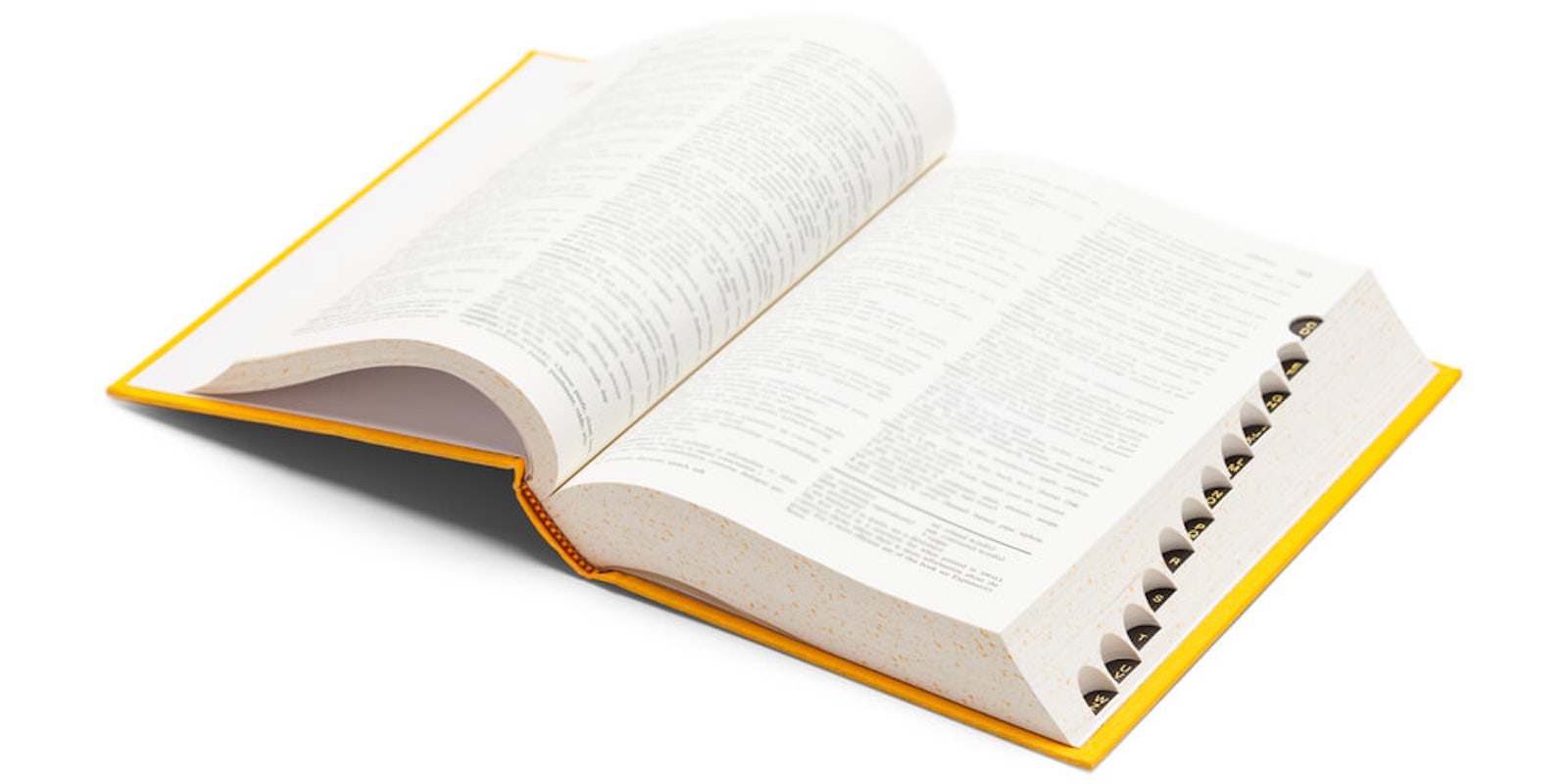Merriam-Webster on Tuesday announced 530 words and definitions will be added to the dictionary, including the usage of singular “they” to refer to nonbinary people.
Merriam-Webster joins the Oxford English Dictionary and Dictionary.com in officially recognizing the singular “they” pronoun. The dictionary company announced the addition on Twitter and in a blog post. Other words to be added in the updates include “deep state,” “pickleball,” and “aphantasia.”
The nonbinary pronoun 'they' has been added to the dictionary. https://t.co/tadl1VdfB0
— Merriam-Webster (@MerriamWebster) September 17, 2019
Some folks are happy, while others claim extending inclusion to nonbinary people is the end of rational civilization. Many have pedantically and predictably argued that “they” has always been a plural pronoun, and you can’t just change things.
There are also some people who are not aggressively dismissive but are genuinely confused by what they perceive as a change to grammar, and for those people, Merriam-Webster put out a blog post explaining its decision. First, though, there was a short history lesson to disprove the naysayers.
“We will note that ‘they’ has been in consistent use as a singular pronoun since the late 1300s; that the development of singular ‘they’ mirrors the development of the singular you from the plural you,” Merriam-Webster’s blog post explained. “Regardless of what detractors say, nearly everyone uses the singular they in casual conversation and often in formal writing.”
The blog goes on to say that new usage of singular “they” is “a pronoun of choice for someone who doesn’t identify as either male or female. This is a different use than the traditional singular they, which is used to refer to a person whose gender isn’t known or isn’t important in the context.”
The blog acknowledges that this might be confusing for some people but also assures that, “It’s not quite as newfangled as it seems: we have evidence in our files of the nonbinary they dating back to 1950, and it’s likely that there are earlier uses.”
READ MORE:
- Sam Smith announces their preferred gender pronouns are they/them
- Caitlyn Jenner ridiculed with transphobic jokes during Alec Baldwin roast
- Far-right mobs attacked queer kids after first Pride in Ukraine city
H/T PinkNews
